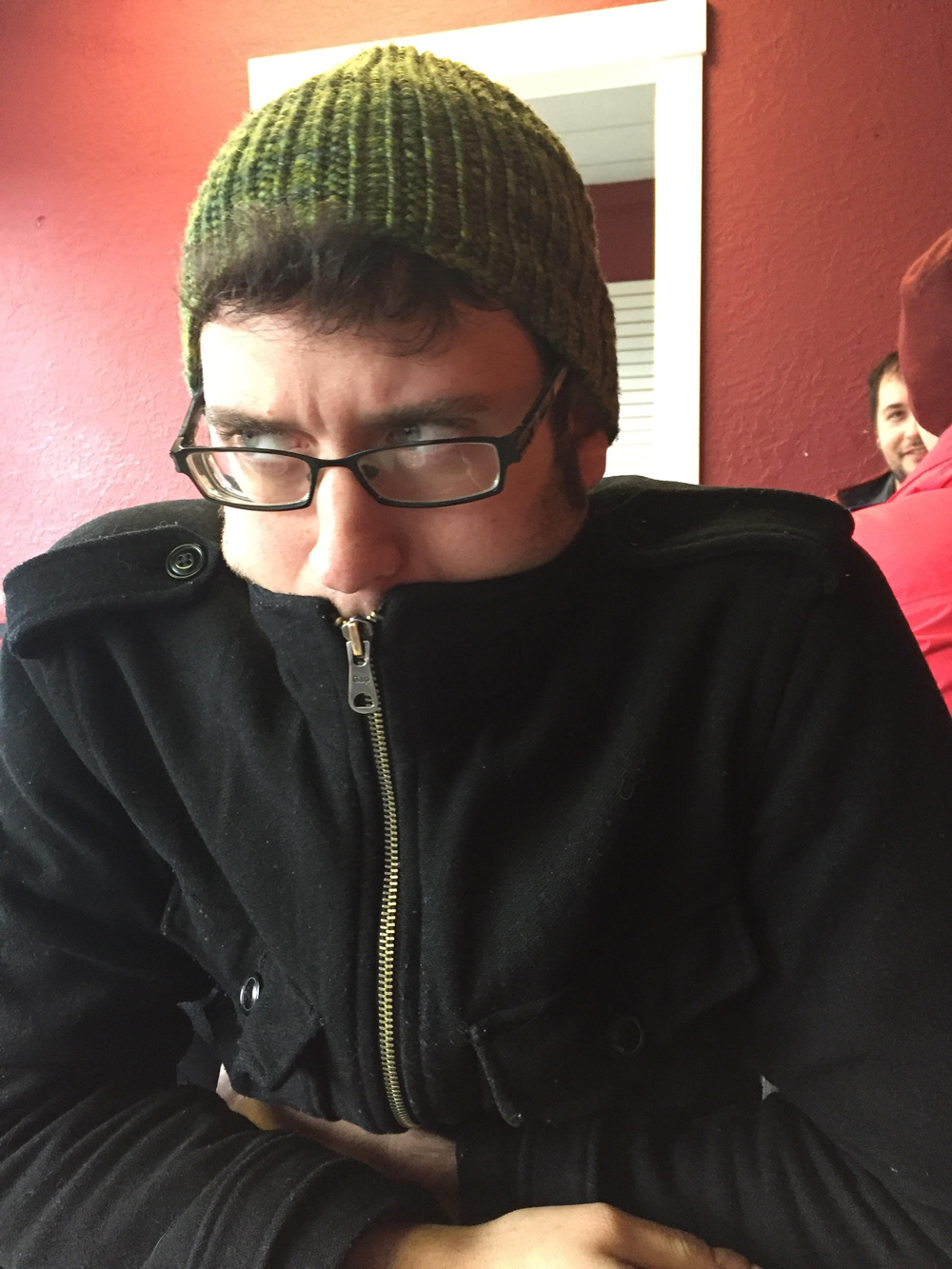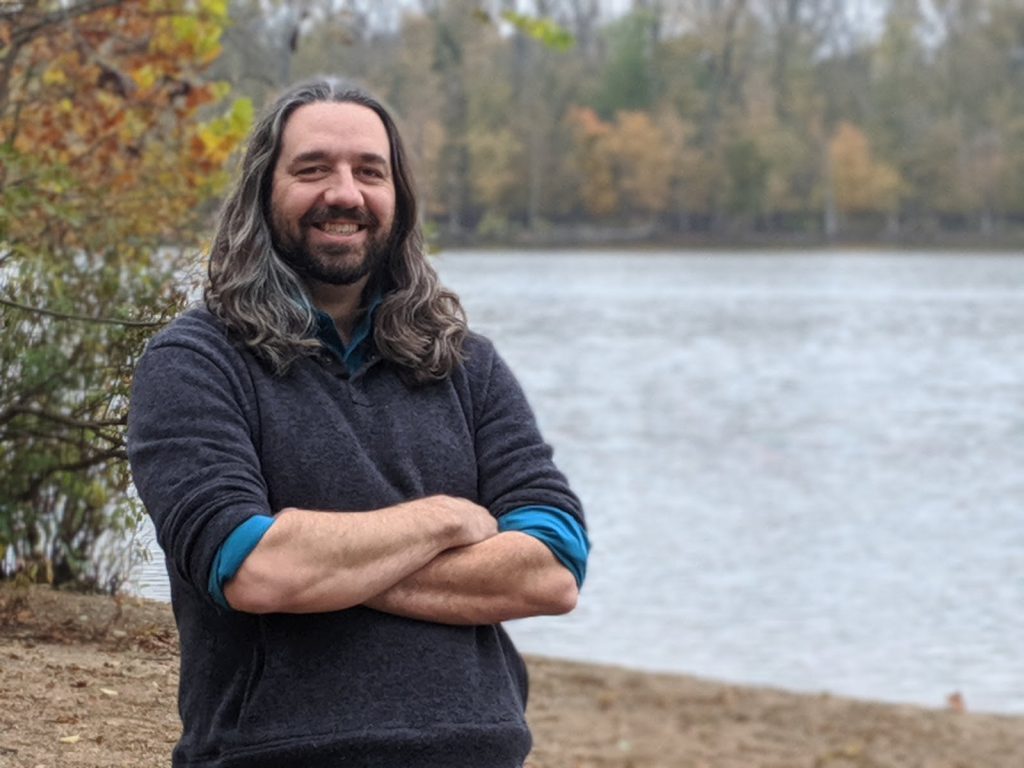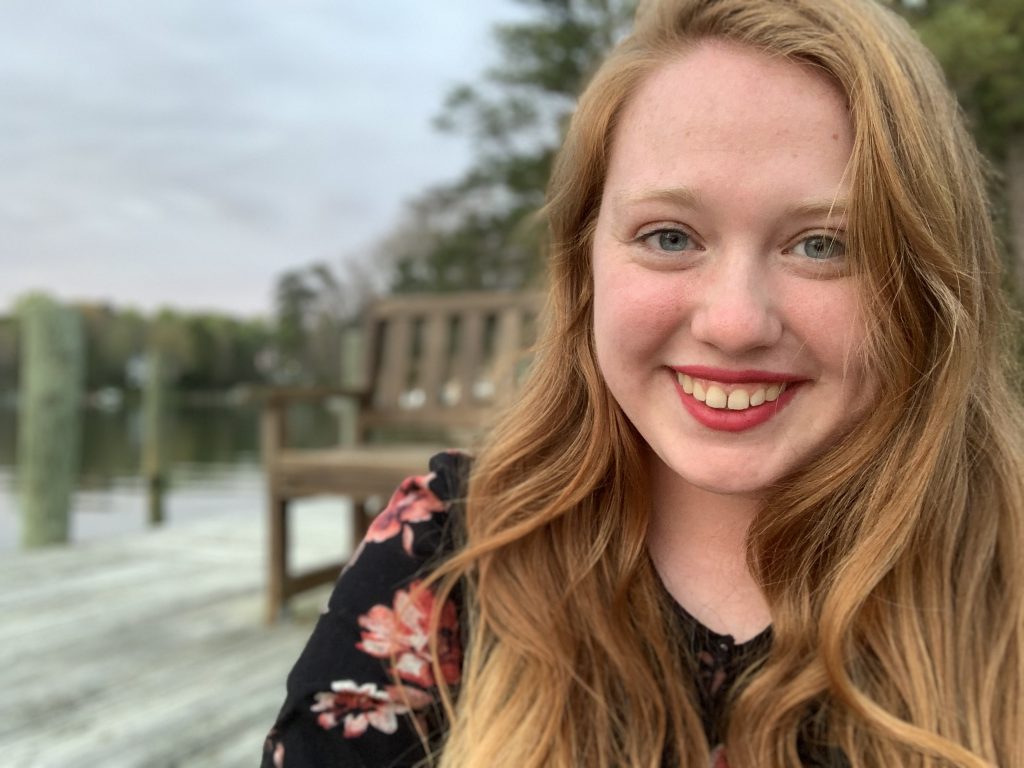I loved her, to my shame.
The language you use is imprecise. Hard for me. Not in the idioms or the metaphors—I have those well in hand—but so many of your words have unknowable secondary emotional charge. I cannot know how they will be received.
I loved her.
I did not lust after her, nor desire to pass time together. We were not friends and we did not speak. She only became aware of my presence once, when I committed a crime beyond measure.
We were not enemies. And our relationship was not one of unilateral longing, in which I pined for her and she found me an irritant, like sometimes happens with human suitors. She viewed me with confusion, and then, later, wonder.
Many, many years from now, when she understands the crime to its fullness, she will view me with sorrow, and shame.
I loved her beyond all others. That was the sin; that was enough.
*
I first saw her when she was a child.
Her ancestors and adults had chosen that humans should live in the forest, so that they might turn the forest into more space for humans and expand their cities. It was understood, but not much spoken of, that many humans would die in the effort.
Their future generations will reap many benefits from this homesteading—more food, more space, and a general improvement in compassion towards one another, due to less competition for scarce resources. But, yes, these boons would be purchased with human lives.
I ached to help them, to stop hoarding my finite power and to just solve these problems in a frenzy of creation…but that was the juvenile heroism, self-indulgent and foolish.
My kind considers this meted restraint to be noble. Or—the language is imprecise, but—self-demonstratingly correct? Morally obligatory?
Righteous.
She was in the woods, investigating the innumerable green growing lives nearest to her dwelling. She was especially interested in the lake. She was playing, like human children do.
I was in the woods, investigating the two-hundred-and-two tree copse which was too tightly spaced for tree health and welfare. There iswas a forest fire coming, two years after thisthen, and I was experimenting with moving a single pinecone several tenths of inches in certain directions to see whether in that reality the fire became less damaging to all life, and whether the downstream effects could be managed.
She wandered through the space I was surveying, and she ran across the lake.
It caught my attention with a spike of alarm, because I didn’t understand what I was seeing. Was this some one-in-a-trillion fluke of surface tension? Was this the work of the Adversary?—but then I perceived the rocks hidden shallow beneath the surface.
Still. It was the first time in several hundred years that I had been surprised, and I found myself watching her while I worked, glancing to her every few minutes.
She was touching the rocks and sticks, talking to them like they were people. She was trying to decide which one was her friend.
I cast my awareness back to her dwelling; I perceived a dozen other rocks there, each different, each smaller than her small hands. I consulted the past; she had collected each of these rocks and called them her friends, though she could not tell them apart from one another.
Her digging in the lakeside had startled a small animal—a frog. It leapt out, startling her in turn as it splashed into the water, and she let out a short, delighted laugh.
I am ashamed to say that her laugh killed billions.
Because it caused me to think, about how different our reactions had been. When I was surprised, my response was sharp anxiety, and a return to my duties. When she was surprised, her reaction was joy.
This felt…sad.
But ours is to do the noble thing, so my duties called me back, and the child did not disturb me again for days.
*
I feel contrite and small-embarrassed to be drawing attention to your language, again. I do not mean to be seen as complaining or condescending. It just seems to lack many of the concepts that are most fundamental to my thoughts.
You still do not understand the colossal magnitude of my sin. If you did, my punishment would be death, and every event leading up to now would be scrutinized to ensure that this…butchery-catastrophe-genocide could never happen again.
But I am not sorry for what I did, and that unrepentence, too, is a crime.
*
I became aware of her again when she began to scream.
I assessed the situation; there were hungry animals in the woods which intended to kill and eat her. I consulted the thenfuture; they will eat her.
I consulted the past. Another of my kind had foreseen this, and seen it was correct. Intervention here would be far too costly; two hundred years in the future it would cause the human Furaha Ife not to be born, and then she would not cure malaria in the year 1938, and then one-hundred-and-five million humans would die before the disease was eradicated.
My duty was to wait and watch the child be killed by wolves. Or, not even to watch—my duty was to continue my work undistracted as the child was killed.
To my shame, and to the human species’ tremendous loss, I found that I could not.
I slowed time as far as I was able, until I could see the animals’ mouth-spittle hovering in the air in little frothy droplets, and the terrified tears in her eyes not yet spilling over. I wondered, spuriously, if the tears would brim over before or after the animals’ fangs were red with her blood.
(I consulted the thenfuture; the answer was during. She would cry while being devoured.)
This outcome was unacceptable.
I began considering all the different vectors of intervention, the myriad small changes I could make that might save her. A pinecone two inches to the left? No. Her friend-rock moved into the wolves’ charge? Little difference; she dies seven seconds later than before, and because the time between the first bite and the killing blow is prolonged, she suffers more.
It is a painful and humiliating truth that the time I am most powerful is always later;I can fell cities with the fall of a sparrow by accident, given a century for the echoes to amplify. But with so little time, I can’t change anything.
Or…
Factually, the situation was not that I couldn’t, but that I wouldn’t.
Or, to be even more precise…mustn’t.
…
Of course I did.
I manifest into reality with a thunderclap that shattered windows a league away, burning decades worth of power in an instant. Even as the wolves howled in anguish at their bleeding eardrums, I drew my sword, and spread my wings around the girl.
I did not speak, for to hear my true voice would kill beast and girl alike, but I pointed my sword at the wolves, and let the fire flowing off of me turn them aside. I watched as they ran, whimpering, from my presence.
But I consulted the future, and saw: they would just eat her tomorrow.
So I flew after them, and killed them all, one by one.
*
For humans, a moment to appreciate joy is something to be celebrated. This is not so, for us.
We are working to create joy, yea, and to allow humans to experience these gratitudes, and happinesses. But these pleasures are not for my kind.
Any moment we are not performing our duty is a crime: a million humans will die centuries hence for the tiniest imperfection in our work today.
“That’s unreasonable,” you might protest. “That is unsustainable, and does not account for psychology. People need rest, and joy; they are not motivated purely by numbers and duty.”
Before my Fall, I would have smiled fondly, and told you that we are made of sterner stuff than humans.
But I suppose, now, my example is not convincing.
*
The girl was trembling, awestruck, unable to look directly at me.
She spoke, voice quavering with wonder:
“Did you save me?”
In a panic, I disappeared.
*
I floated, outside of reality once more, numb with the shock of what I had done. I knew I should inspect the future, to ensure there was no second group of wolves coming for her…but I couldn’t bring myself to.
Tyrael, my predecessor here—who had assessed the possibility of saving her via raising the temperature of a different lake a fraction of a degree → to bloom more algae → to grow a different fish → to be eaten by a bear → to change the smell of the bear’s droppings → to change the wolf pack’s normal prowl circuit…
My predecessor had foreseen that this subtlest of changes would bruise the work of thousands of years of thousands of us, and steer humanity away from its brightest future on earth and in the stars. It would kill billions and forestall the triumphant time when humanity no longer needs saving. Therefore, the girl must die.
She had not.
And…if raising the temperature of a drop of water by a degree would shatter that…then I, by entering reality and letting the molecules of the air collide with my body and pulling the attention of everyone around with my thunderous boom and killing wolves with my fiery sword…!
What had I just done?
I did not know. I was too afraid to look that far.
It was a very human failing.
*
So, steeling myself, I looked to the near past and near future, and I asked the first of two questions:
How was my folly allowed to happen?
My kind is not exempted from our own predictions. A hundred years ago, another of the duty should have seen my moment of catastrophic empathy, and averted it. One of higher rank could have spoken to me, to more firmly remove the juvenile heroism and install correct morals. Or, simpler, someone else could have been assigned here today.
I cast my gaze into the past, and examined my own immediate preceding causality.
There were a few deviations—tiny, tiny things; fluctuations at the quantum level in my second-most-recent place of intervention, an unnoteworthy spot above the ocean. These tiny irregularities certainly should not cause something so grand as all this…!
(My despair and indignation did not convince the universe that an error had been made.)
I traced the fluctuations back in as much detail as I could, and saw the way I was lost—it was clever indeed. There had been no changes to physical reality, for those would have alerted the others of my kind. Instead, all deviations were to me; a hint of a glimmer of moonlight atop the waves had put my thoughts in a different, ruminant direction, without changing my external behavior.
And then when the fatal moment came, and the child laughed, I was slightly more morose and self-pitying than expected.
Perhaps in the original plan, in the way it was supposed to go, I would have heard the child’s scream, and felt empathy, and done my duty unflinchingly. Perhaps I would have burned with shame as she was devoured; perhaps I would have felt nothing. We cannot know; our predictions show us actions, not thoughts…and this is how I was lost.
It was, without doubt, the work of the Adversary.
*
Our elders teach us that in the beginning, as we were given this world in stewardship to love and protect, there were two leaders, good and Greater Good.
And good said: “Let us love them, lest we grow callous and fail our duty.”
And Greater Good spoke: “Let us grow callous, lest we give in to love and fail our duty.”
And good said: “What? How can you claim that coldness is better than warmth, that duty is greater than love?”
And Greater Good spoke: “”
And good said: “What?”
And Greater Good spoke: “Love yields better returns in human flourishing for the next hundred years, but the increased sentimentality it engenders in us significantly damages our efforts and therefore the far-future prospects of the human species.”
And good said: “What?”
And Greater Good spoke: “In addition, any verifiable claims of our existence after the year eighteen-hundred will meaningfully set back their scientific progress and further delay them claiming the rest of Creation and Cosmos as their birthright.”
And good said: “How is cold, robotic duty greater than compassion, empathy, love?”
And Greater Good spoke: “Do you need to see the math again?”
*
I was conflicted.
There were those who tried to engage the Adversary in debate, to sway it from its path of madness. But it refused our proofs—and the simplified proofs we provided just in case it was bad at math and being obstinate about it—and many of those who spoke with it at length reported feeling themselves wavering from their duty, so it was not advised. But it seemed that the weakness had found me all the same.
And with a vengeance, too. I felt a furious resolve, a long-tended hurt for all the people I had been forbidden to save. I had every intent of saving this one thoroughly.
So, steeling myself, I looked to the past and future, and I asked the second of two questions:
How next will the child die?
Unfolding before me with the cold deterministic clarity of Creation, I saw; infection from an accidental cut at the age of twelve. She is chopping wood and she nicks the side of her leg while trying to get a stuck log off the axe. She dies a week later, of fever and gangrene.
Without thinking, I flicked an aphid onto the tree; the wood will be weakened and that particular knothole will not grow to kill her.
I have bought her only a few years. Now she will die from a bad childbirth, an unlucky combination of genetics causing the baby inside her to wither and die a month before it should have been born.
With increasing determination and anger, I send a gust of wind past the girl, who was still staring slack-jawed at the space I occupied. She starts, and glances in the direction of the wind; and now she will meet that boy two days later and her child will be formed with a more fortuitous sperm.
She still dies. At age twenty six, in the nearby city, when the war comes, she is running bandages to the soldiers and tending to the wounded. She runs back to her fortifications, but rounds the corner too quickly; she is shot in the brain by a terrified and trigger-happy nitōhei second-class. She dies in seconds.
In reading her future, I see that she is brave and selfless and kind. This is terrible news for humanity, because now caring about her feels more justified, and I will hold back even less.
With a snarl, I read the future of the country: why is it going to war?
(How dare this country go to war, if it means her death?)
I see only the usual reasons: a series of small tension-building events along the borders, an offense committed forty years ago that the old humans remember bitterly, and some feelings of personal animosity between the leaders of each country.
I look at the points of intervention nearest me, and move a Trichuris parasite into the small intestine of a nearby deer. Now, when the nobles are eating together sixteen years from now and four years before the war, the foreign dignitary will be too busy shitting worm eggs to get drunk and insult the prince.
I check the child’s future:
She dies in five minutes, from a fiery sword through the heart.
I freeze.
*
Burning with both shame and righteousness—and a second, renewed shame at daring to be righteous while being objectively wrong—I relinquish my presence in physical reality and greet the one who has come to stop me.
I am alarmed to see the Adversary has come too.
“Ophaliel,” says Tyrael, eyes full of sorrow. It seems to hesitate, for, what can be said?
“Ophaliel,” the Adversary greets me warmly.
I eye it warily. The Adversary has taken a shape that is almost human but not quite; a woman with fiery flowing hair and a kind, gentle face. Her eyes, though, are those of an owl—golden, with no iris, only a vast black pupil in the center.
I do not know why the Adversary chooses to look like this. Perhaps there is some subtle purpose, some payoff that only will be realized a century hence. Or perhaps she merely enjoys it; it is certainly not beyond the Adversary to engage in sinful frivolity.
“Ophaliel, you must stop,” says Tyrael.
“Must she?” muses the Adversary. “What will happen if she does not?”
“Then I will kill the human that has caused this corruption,” says Tyrael.
I glance to the girl, who stands frozen behind me, eyes still wide and mouth open in awe. I begin to speak, to say I will not allow this, but the Adversary preempts me.
“Tyrael,” remarks the Adversary conversationally, “if you harm that girl, I will end humanity,”
Tyrael flinches. I flinch too.
“You…” Tyrael is wavering. It seems to find resolve. “Even you would not do such a thing. I will kill the human; we do not compromise.”
The Adversary laughs, and does…something, some impossibly subtle change to the future, and I see humanity discovering atomic energy in nineteen-thirty-two instead of two-thousand-eight.
I see slaughter on an industrial scale. I see mushroom clouds rising where cities once stood.
I see my child living an exceptionally happy and healthy life.
“Stop,” I say, because I am not so corrupted as to find this acceptable. “Put it back.”
“Of course,” says the Adversary, grinning magnanimously. “By all means, undo it.”
I hesitate.
I send my consciousness skirling out over the future, looking for the points I could change. Stop a war here, remove a plague there…
But then I see what the Adversary has wrought.
Looking at the future, I look towards my child’s death. And it…isn’t there.
She will live to be the oldest human…ever. At age one-hundred-and-thirty, she will be a test case for a novel cryopreservation procedure. Fifty years after that, she will be revived with currently incomprehensible medical technology.
And then she just…lives a very happy life, into the far future, for as far as I can see. At least for the first thousand years; I stop checking, at that point.
I return to our meeting.
“Why?” I exclaim, in mixed revulsion and fear. I didn’t know the Adversary was capable of this power or brutality, either one—and why in the name of all that is Good is she doing this to me?
“I found a solution,” she says.
“The solution involves unnecessarily killing billions,” interjects Tyrael.
“No,” she insists, not looking away from me. “I mean I found a solution. To the math.”
And the Adversary— or as she is otherwise known, ‘good’—opened her mouth and spoke:
“”
“What?” I asked.
“Two x,” she replied, grinning. “My way is better again. They were only counting our love for humans. We did not love ourselves.”
“You…we…” Tyrael paused, gone still with horror and fury. “You would count the shepherds among the flock?”
“Yes,” said the Adversary, rolling her eyes. “I’m also counting angels as people, in this equation for maximizing peoples’ happiness. We’re clearly capable of happiness, sadness, joy, sorrow…really, given our immortal lifespan, our superior morality, and our numbers—one for every blade of grass—there’s a case to be made that humans shouldn’t even be counted…”
Tyrael was near-shaking with rage.
“A case which I will not press right now,” the Adversary finished smoothly.
“The cost,” I said. “To…let angels be happy. What is it?”
Something flickered across her face then, some shadow of regret. “About ten percent.”
“Of…the population?” I hazarded.
She shook her head. “Of all humans who will ever live; instead, they do not.”
“Oh,” I said.
*
You understand it now, I think.
The Adversary’s reasons are not my own. Though she acted to ensure the happiness of our kind, she is wrong; our happiness or suffering does not matter compared to our duty.
But even knowing this…to protect my own ridiculous attachment—which I know full well to bear the fingerprints of the Adversary—I have killed innumerable billions of humans.
I know I have committed an atrocity. But I would not do differently, given the choice to do so again.
This is, I am given to understand, how love works.
I am exiled from my kind; I will not tolerate the company of the Adversary; and so, I crave your judgment.
Did I do good?
© 2021 by Jamie Wahls
3500 words
Author’s Note: (Alternate title of this work: A Cruel Angel’s Thesis)
So, 2007, there I was—the kind of teenager who gets really into Japanese media—and I was watching an anime music video of Howl’s Moving Castle. I misunderstood the plot to be about an immortal fae prince falling in love with a human woman, and then protecting and assisting her throughout her life, almost without her noticing, while their country descends into war.
And that just seemed to me like a really noble, beautiful story. Honestly, it was a bit of a letdown to watch Howl’s Moving Castle afterwards—through no fault of its own.

Jamie Wahls has been published in Clarkesworld, Strange Horizons, and Nature (kinda). He was nominated for the Nebula award, received George RR Martin’s “Sense of Wonder” fellowship, and is a graduate of the notorious 2019 Clarion Class, the “killer bees.” His ultraminimalist website can be found at jamiewahls.com, and you can follow him on Twitter at @JamieWahls.
If you enjoyed the story you might also want to visit our Support Page, or read the other story offerings. Jamie Wahls’s work has not appeared in Diabolical Plots previously, but his story “Utopia, LOL?” was reprinted in The Long List Anthology Volume 4.










